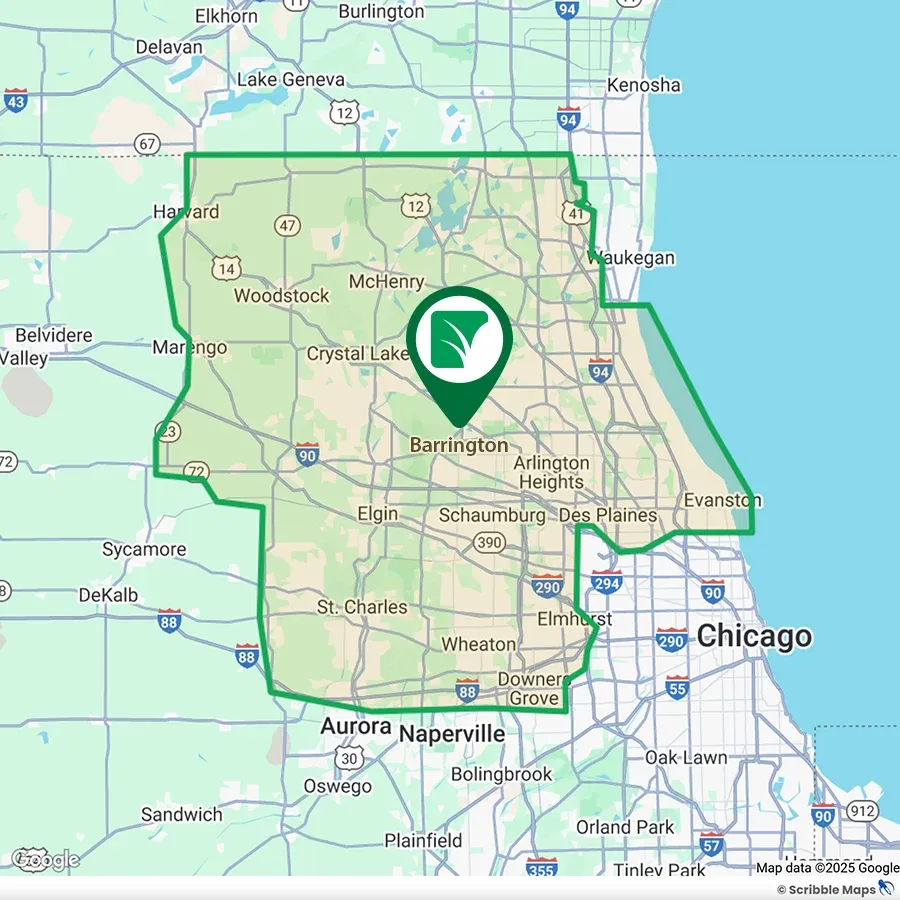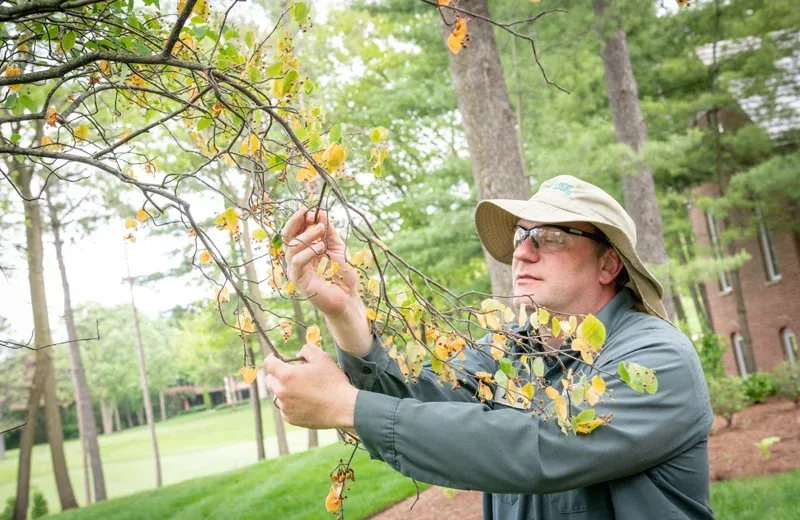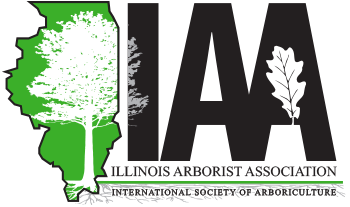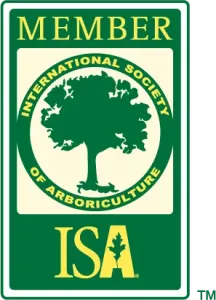Tree Disease Control in the Northern Chicago Suburbs
Not to worry—we have been solving tree and shrub disease issues for homeowners in our local communities since 1986. Our green team of ISA-certified arborists are experts in the proper diagnosis and control of diseases that attack our local trees and shrubs. You will love our Natural-Based Holistic approach, which considerably reduces tree and shrub diseases, along with other common plant problems.

Identifying and Treating Tree & Shrub Diseases
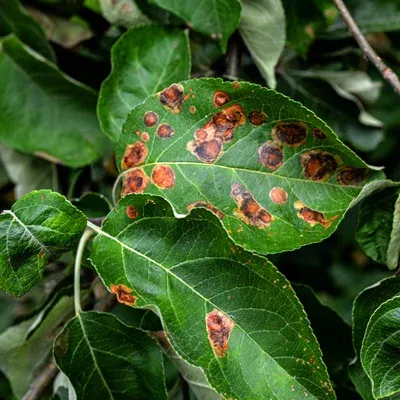
Symptoms of tree and shrub disease typically show up in the leaves of the plants. Leaves can be discolored, have spots or blights, become deformed, or drop prematurely. Symptoms can also develop on the trunk, branches, or roots. Over 20 different diseases can affect our Chicago land trees and shrubs. Having an ISA-certified arborist properly identify your tree or shrub disease is the first step in understanding how to control it best or manage it.
Treating Tree & Shrub Diseases
Once you have correctly identified which disease is damaging your trees or shrubs, you can now then focus on the best method for controlling that disease. Treatment options our arborist might recommend may include spray applications, soil drenches, injections, air spade treatment, or other tree care steps. We like to use a natural-based holistic approach that focuses on strengthening the health of your trees and shrubs so they can better resist disease attacks or bounce back quicker after attacks.
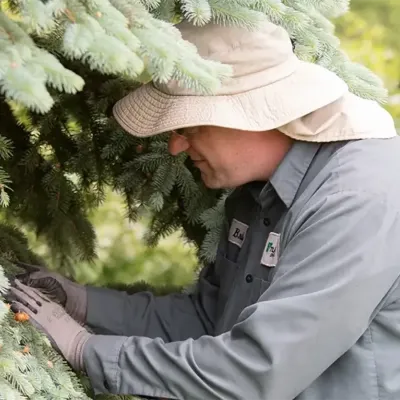
A Natural-Based Holistic Approach
Plants have the ability to build natural defenses against disease, insects, and other common plant problems, provided they have the proper building blocks, such as correct nutrition, favorable growing conditions, and proper cultural practices. Our Holistic approach focuses on giving your plants what they need to grow healthy and strong so they can better fight off disease with less need for treatments. Contact one of our ISA Certified Arborists to learn more about how this process can help your trees and shrubs.
What are the different types of tree diseases in the Chicago area?
Diseases that affect trees and plants in the Chicago area are classified in three ways: fungal, bacterial, and abiotic.
Fungal infections can be spread by wind and rain, carrying the spore and infecting other plants. Other pests, root grafting, and tree trimming are other ways fungal infections can spread. Treatment may include fungicide spray and injections. Some diseases are simply aesthetic and do not harm the tree, while others are untreatable. Our ISA Certified Arborists can diagnose and prescribe treatments to get your tree and shrub’s health back on track. Most common fungal diseases include Apple Scab (Apples and Crabapples), Diplodia Tip Blight (Pines), Dothistroma Needle Blight (Austrian Pines), and Rhizosphaera Needle Cast (Spruce).
Bacterial diseases are spread in similar ways as fungal infections. They can also occur due to climate, or birds and squirrels can spread it from plant to plant. Most bacterial issues are treated with injections. Bacterial diseases are less common and tend to be in an outbreak variety, much like a situation of the perfect storm of contributing factors causing them to spread rapidly. The most common bacterial diseases are Fireblight (Rose family- Ornamental Pears, Crabapples), Bacterial Leaf Scorch (can affect anything), and bacterial cankers (can affect anything).
Abiotic diseases are common and sporadic. They are simply a result of man or environment. Since they are not generally planted in their natural environment, many things contribute to abiotic diseases, such as poor soils, poor pruning, poor location, not planted properly, location too close to a structure, weather, climate, etc. Though some are untreatable, many treatment options are available, including injections, soil treatments, and air excavation. Chlorosis is a very common abiotic disease. Birches, maples, and oaks become deficient in iron and/or manganese. Other abiotic diseases include winter desiccation, salt damage, girdling roots, and mechanical damage.
What are the most common tree diseases in this area?
The most common tree diseases in the Chicagoland area include – Anthracnose, Apple Scab, Armillaria Root Rot, Black Knot, Blight, Cankers, Chlorosis, Diplodia Tip Blight, Dothistroma Needle Blight, Dutch Elm Disease, Fire Blight, Leaf Spot, Leaf Blotch, Necrosis, Oak Wilt, Pine Wilt, Powdery Mildew, Rhizosphaera Needle Cast, Thousand Canker Disease, and Verticillium Wilt.
Looking for Tree Disease Control Near You?
Stop searching and start protecting. Our certified arborists serve all Chicago suburbs with holistic, natural-based tree care solutions and free property assessments.
